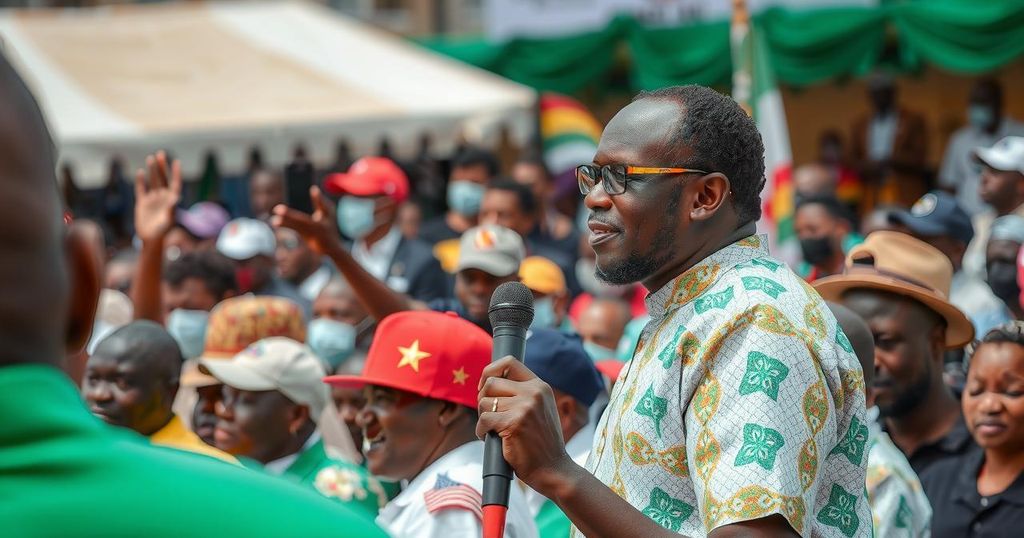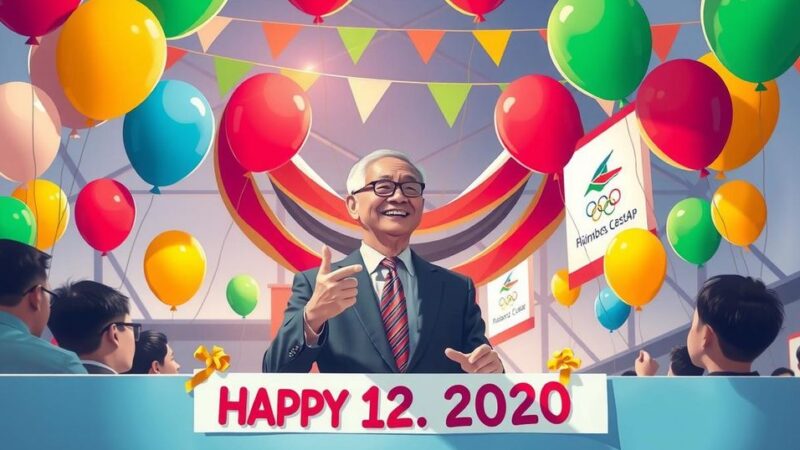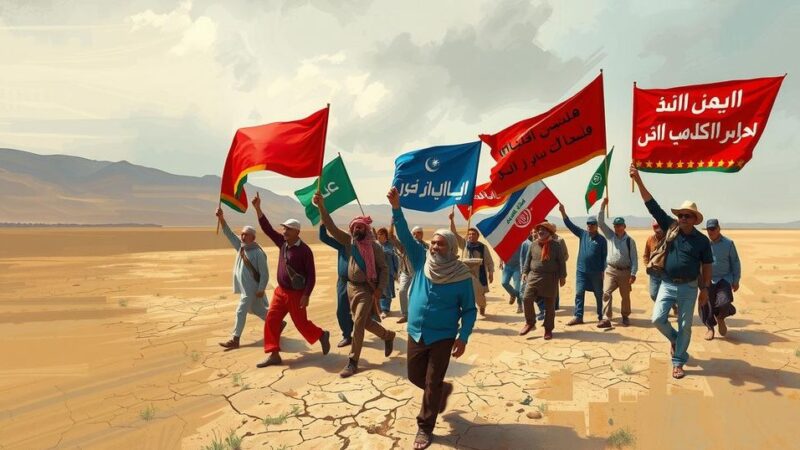Ghana’s presidential elections featured Vice President Mahamudu Bawumia and former President John Mahama in a competitive race, driven by economic hardships. Voter discontent over inflation and job scarcity dominated the electoral discourse, with Bawumia seeking an unprecedented third term for the NPP and Mahama promising economic reforms. Preliminary election results are expected soon, reflecting the critical nature of this electoral contest.
Ghana recently conducted its presidential and parliamentary elections, which saw Vice President Mahamudu Bawumia and former President John Mahama as the leading contenders. The nation is hopeful for economic recovery amidst its severe financial crisis resulting in a significant debt default. President Nana Akufo-Addo’s departure after two terms opens the field for change in leadership. Key issues during this election included the economy, inflation, and job scarcity, all of which have heavily impacted voters’ decisions. With early voting ending at 1700 GMT, expectations are high for preliminary outcomes to be announced the next day, while complete results are anticipated by Tuesday.
Bawumia, representing the ruling New Patriotic Party (NPP), aims for a historic third term, despite criticisms tied to the current administration’s economic management. He emphasized his optimistic outlook for the election, citing his government’s work in digitalization, free education, and health initiatives as transformative. Conversely, Mahama, who served as president from 2012 to 2017, is campaigning on plans to “reset” the economy and create a “24-hour economy” to drive job creation and productivity.
This electoral process reflects a broader narrative of Ghana’s rich political history, characterized by the balance of power between the NPP and the National Democratic Congress (NDC) since 1992. Voter sentiment, particularly among youths like first-time voter Abdullah Mohammed, conveys a desire for meaningful change regardless of party affiliation, revealing key dynamics affecting the election outcome. Furthermore, issues such as illegal gold mining have surfaced as contentious points, reflecting ongoing socio-economic challenges within the nation.
As voting concluded, the temporary closure of land borders was implemented to preserve election integrity. Both candidates represent regions with historically strong NDC support, marking them as significant battlegrounds in this election.
The just-concluded elections in Ghana are viewed against a backdrop of economic challenges faced by the nation, which include a recent debt default and high inflation rates. Ghana’s economy, primarily driven by cocoa production and gold exports, has come under scrutiny as citizens express dissatisfaction over rising living costs and job scarcity. The transition of power from President Akufo-Addo, who has completed his mandated two terms, adds urgency to the desire for leadership that can address these pressing issues. With two main parties, NPP and NDC, alternating power for decades, the country’s political stability has recently been challenged by economic pressures and increasing voter demand for change.
In summary, Ghana’s recent presidential election exemplifies the nation’s quest for leadership capable of addressing severe economic challenges and restoring faith in governance. Voter sentiment highlights a push for change, with both Bawumia and Mahama presenting distinct visions rooted in their respective political legacies. As the nation awaits results, it stands at a pivotal point that could reshape its economic future and political landscape.
Original Source: www.france24.com






